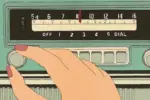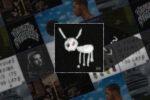My first exposure to Spotify was a friend of mine telling me, gleeful hyperbole in his eyes, that “Spotify is the future.” As someone who used a combination of YouTube, Soundcloud, Amazon, iTunes and Bandcamp for my music, I initially labeled Spotify an unnecessary addition to my life. But after being berated by my friends and roped in by Spotify Premium’s student discount, I found myself clicking the Free Trial button and being immediately and unequivocally hooked.
Not only did almost every song I could ever want appear at my fingertips in a much more user-friendly interface than I’d ever seen (I’m looking at you Soundcloud, you clunky bastard), but I was able to download the music to be used offline on any device, create and share playlists with unprecedented ease, use a “Radio” function that was like Pandora but better, and enjoy the creepily accurate algorithms responsible for my “Daily Mixes” and “Discover Weekly” playlists.
But then rose the controversy. Major artists, most notably Atoms For Peace and Taylor Swift, came out and told the world that Spotify was not the savior to the music industry, but its anti-Christ. Horror stories of artists getting paid nothing for their music flitted this way and that, and I began to fear that I should be feeling guilty for enjoying the service so much, in a similar fashion to the way sneakerheads may occasionally imagine with discomfort the unpaid orphan who stitched up their favorite pair of Nikes.
So we have the question: is Spotify evil? The answer is, as you might have feared, that it’s complicated.
Initial Arguments and Misconceptions
Spotify makes money two ways: 1) The users who don’t have premium are interrupted by ads, which pay Spotify money for every interruption and 2) the Premium subscribers pay $10 a month; Spotify then pays its artists per stream for their music. Meaning that for every time you listen to a song, the artist (or their record label) gets approximately $0.006 to $0.0084. It is, of course, more complicated than one play equals X amount of money, but we will get into the details later.
The biggest and most potent argument used against Spotify is that it benefits major artists while leaving newcomers, especially independent newcomers, in the dust. This is due to a couple things. Firstly, when an already successful artist joins Spotify, all of their old records (tracks that have already paid off their production costs) are added to the system. So, even if all of their fans already bought their music prior to getting a Spotify subscription, they are now paying for it again when they stream it. But for artists that don’t have an extensive catalogue and accompanying fanbase, it threatens to make it impossible to even earn back their production costs in the first place.
More significantly, Spotify doesn’t have the same royalty agreement with every artist or label. The big labels with catalogues that Spotify knew people already desired were promised bigger slices of the pie as a way of securing their initial cooperation. It seems Spotify wanted to ensure that its own production costs were covered as well, a goal only achieved in the past year or so despite the company being created back in 2011.
BUT, screams Spotify spokespeople and fans through emotionally charged megaphones, IF YOU THINK BUYING THE MUSIC THROUGH ITUNES IS GIVING MORE MONEY TO THE ARTISTS, YOU’RE MISSING THE POINT.
The idea is that we should be shifting our mindset from “unit-based thinking” to “consumption-based thinking.” To quote one of Spotify’s artists in residence D.A. Wallach: “We feel the metric of success should be based on how many people are listening to your music over a period of years, as opposed to looking at how many units are shipping in one week. People are used to seeing big numbers from a unit-based model, but that’s really front loading what is happening. Comparing iTunes sales with Spotify payments over a two month period of time is not a great way to look at things.”
However, this threatens to give a false impression. I have now seen multiple articles and blogs explain that if you really like a song and are streaming it all the time every day, you’ll quickly make the artist more money than you ever would by paying a flat rate to own it forever. After all, if the artist earns $0.006 every stream and you listen to it 100 times a day, in a week you’ve already paid the artist $4 (as opposed to the one dollar on iTunes) for their music, right?
Wrong. As I mentioned earlier, it is more complicated than that. You pay Spotify $10 a month. It gives six to the artists or labels you listen to, one to the publisher and keeps three for itself. Out of the 70 percent it gives to the owners of the music, Spotify looks at what percentage of their total streams a particular song is and pays the artist accordingly. If a song accounts for 2 percent of Spotify’s total streams that year, then 2 of that 70 percent goes to the artist.
In short, because you are paying a flat rate regardless of how much you stream, the more music you listen to, the less valuable each listen is. This makes a lot of sense, because if you listen to Spotify all day you can’t magically generate money that Spotify doesn’t have through sheer love of the music. But if this holds true, then how valuable is the streaming over time compared to just buying the music on iTunes?
A popular metric, one reflected in some viral articles like Damon Krukowski’s “Making Cents” on Pitchfork, either implies or explicitly states that streaming is roughly 100 to 120 times less valuable than buying the song on iTunes. This, too, is an exaggeration rooted in mathematical error.
The Middle Ground
As usual, the truth lies somewhere in between the sides of a shouting match. I’d direct anyone truly interested in accurate consumption-based analysis to an article on the MIDiA blog called “How Much Streaming is Really Worth to Artists.” Without getting into the nitty-gritty of the math, this article shows that based on what’s called a “like-for-like comparison,” actually buying music is approximately 5.5 times more valuable to artists than streaming. This is a significant gap to be sure, but also a much smaller one than much of the negative hype has implied.
Part of Spotify’s claim to fame is also that it has been cutting down on piracy, which has run rampant since Napster first changed the landscape of the music industry in 1999. While countries such as Sweden and the Netherlands where Spotify is hugely popular have reported that music piracy has dropped as much as 25 percent, there is little concrete data to support this. On the flipside, there is no data yet that implies Spotify has been significantly cannibalizing normal record sales for artists either.
Spotify does, however, lack a certain level of transparency that makes artists uncomfortable. How different are the royalty rates between indie artists and major labels? How do their rules and negotiations change from deal to deal? Streaming also adds middle-men into the ordeal, more heavily involving record labels in the process than in simple CD or iTunes sales. In many cases, it seems like artists should be questioning their labels about royalties instead of simply storming out of Spotify with their fists held self-righteously in the air.
Besides the fact that music labels are notorious for manipulating and conniving signed artists out of their money, you also have to recognize that Spotify is legal, licensed and lets anyone back out at any time. So if the check in the mail doesn’t match what the negotiations said, then they are most likely not the ones to blame.
And while the rise of Spotify’s popularity does mean that it will affect iTunes sales in a negative way, the rise in popularity also means that the aforementioned 70 percent of profits it is giving to the artists will be of a bigger pot of money, making everyone’s collective streams more valuable. Most significantly, it is important to recognize that the sheer amount of music available nowadays makes sweeping, (inter)national fame practically unattainable and that, therefore, it is impossible for anyone to live solely off record sales. Live shows and merchandise make up most of an artist’s income, or at least a huge portion of it.
This idea is partially summarized by Zoe Keating, a cellist: “I do not see streaming as a threat to my income, just like I’ve never regarded file-sharing as a threat but as a convenient way to hear music. If people really like my music, I still believe they’ll support it somewhere, somehow. Casual listeners won’t, but they never did anyway.”
And there, in my opinion, is the biggest defense for Spotify. Most of the people only listening to your music digitally were not going to buy your album in the first place. This is also a place for Spotify to help its artists more. It allows musicians an opportunity to buy Spotify plays and gain exposure. While the service does currently notify you of artists’ shows near you, it could increase the intensity with which it does so. By alerting you of shows and merchandise and other ways to support the artist, it will encourage the listeners to engage with their favorite bands. Additionally, Spotify has a wealth of listener data that it mostly keeps to itself, but if it were to share this info with the artists, it could begin to build a more interactive connection between the music producers and the music listeners.
So is Spotify evil? No, not really. But it is definitely more of a blessing to the listener than to the artist. More could certainly be done to support the musicians who choose to make their music available for streaming. But if you really worry about your favorite artists getting snubbed by the system, don’t just unsubscribe as an act of defiance. Buy a CD, T-shirt or, most importantly, go see them live. The casual fans weren’t really helping anyway.
Author’s Note: Shout outs to this article posted by “The Guardian” for providing such an extensive list of helpful articles on the subject. It was not my only source, and I had already found a handful of the articles it lists before stumbling across it, but to anyone who wants to read more on the subject, you should check it out.


















amazing article ideas
“Your journey with Spotify is so relatable! It’s funny how we can be skeptical about new platforms until we give them a chance. I remember when I was hesitant to switch from my usual music sources too, but once I dove into Spotify, I was hooked by the convenience and the vast library of music available. The curated playlists and personalized recommendations really do make it feel like a whole new world of music discovery. Plus, that student discount is a game changer! It’s incredible how platforms like Spotify can reshape our listening habits and introduce us to artists we might never have found otherwise.”
join our website for more information : iconwin